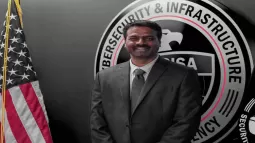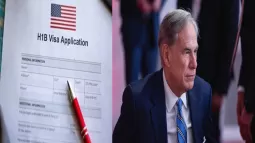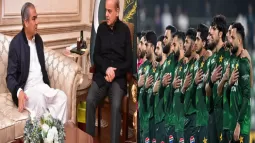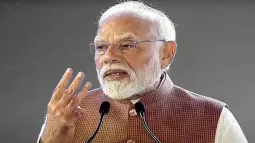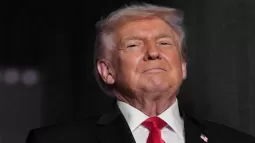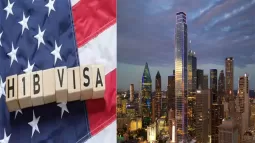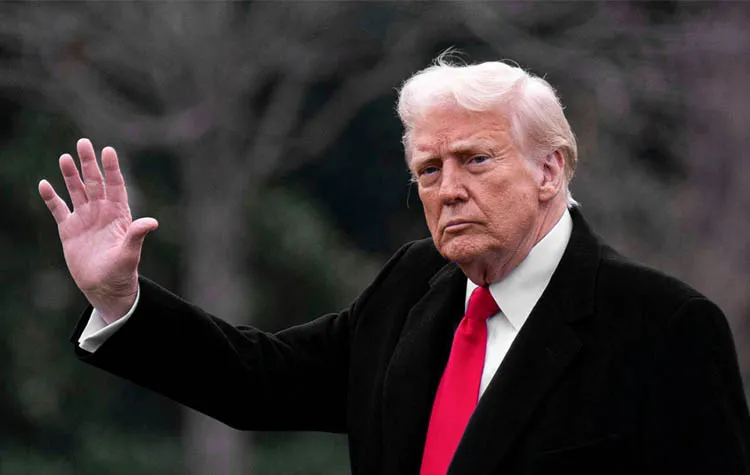
United States President Donald Trump has been called out again for issuing the deportation of Salvadoran citizen Kilmar Abrego Garcia. Trump had alleged Garcia to be a 'M-13' gang member, which invoked heated public reaction. Critics contested the validity of a photo, which Trump put up on the social media indicating the presence of tattoos on the fingers of Garcia with symbols belonging to a gang. In an increased criticism period, President Obama reiterated his immigration enforcement policy, calling out critics to let him do what he was elected to do.
Deportation Controversy of Kilmar Abrego Garcia
Kilmar Abrego Garcia's deportation has been a political matter in the United States. President Donald Trump, while defending the action, had characterized Garcia as belonging to violent 'M-13' gang. Court and law enforcement records, Trump claimed, vindicated the assertion, including a gang-tattooed symbol as evidence. The deportation, he insisted, is part of the broad initiative of his administration to advance national security through strong immigration policies.
The episode elicited instant reaction from political rivals and public figures. Political rivals questioned the deportation and authenticity of evidence used. Trump posted a single photo on social media, allegedly depicting the 'M-13' tattoo between Garcia's fingers, which became the controversy. The President was accused by many of using fake photos as the basis of tight immigration policies, evoking concern over disinformation and moral leadership.
Photo Authenticity Triggers Backlash
Various commentators, including former Minnesota State Senator Linda Higgins, questioned the legitimacy of the tattoo image in public. There were allegations that the image was manipulated digitally, and there was extensive social media skepticism that ensued. Some users posted older images of Garcia, alleging that there were no tattoos in them, hence challenging the narrative from Trump.
In spite of all these issues, Trump stated that the deportation of Garcia was in the national interest of protecting American communities. He went on making assertions that the deportation was based on legal grounds in documents and reiterated the administration's intention of deporting violent players. Trump's announcement painted Garcia as threatening, referring to incidences of domestic violence and other violent offenses as the alleged reasons for the deportation move.
Trump Urges Critics to Support Immigration Policies
In response to the criticism, President Trump called on political adversaries to let him carry out his duties without hindrance. He justified his actions as part of a broader war effort to improve national security and diminish criminality in the country. On Twitter, he blamed the Democratic Party for commiserating with offenders of violent crimes, citing Garcia's alleged domestic violence background as a reason for his dismissal.
Trump justified that all the policies of his administration are aimed at keeping law-abiding Americans first and protecting American borders. Trump emphasized that the law enforcement agencies had confirmed the membership in gangs with concrete facts. The President contextualualized the scandal as a distraction from his overall mission: keeping law and order and pursuing public security by taking strong immigration measures.
Public Reaction and Continuing Debate
The clip has heightened debate on the role of social media by political players to shape perceptions. Critics argue posting unverified or altered information loses people's trust and damages democratic processes. Support for Administration believes that the administration is taking bold measures against keeping criminal risks in mind despite politics being against them.
With controversy still unraveling, advocacy groups and lawyers call for openness of handling and reporting immigration cases to the public. There is a demand for as much truth as can be given, especially if sensitive information is involved, like deportation and gang memberships. With both sides having stood their grounds firmly, Kilmar Abrego Garcia's case continues to feed national debates on immigration, law enforcement, and political leadership's role.

